Climate change - the evidence they don't want people to see
FRIDAY SEPTEMBER 27, 2013
(pic: Rangitoto, acknowledgement Brett Phibbs)
Suggestions from the Head retiring Metservice meteorologist, parrotted coincidentally within the same week by NIWA, that anticyclones were getting more extreme with higher and higher pressures creeping up over the past 40 years, indicating that the seasons may be now in a slow state of change, last year gained public attention. There was the usual call by both parties for more research funding to investigate.
http://www.stuff.co.nz/national/videos/6316862/Bob-McDavitt-retires
http://www.sunlive.co.nz/news/21861-bays-heating-up-this-century.html
I needed to do my own verification because if true it would mean my longrange forecasting method, which is a function of past and very regular cycles, would be getting incrementally less accurate,. To find verification I reasoned that the best way would be to analyse NZ Metservice’s own historic archival data, now available free on NIWA’s website. According to daily air pressures from Station C74082 (Auckland Airport), and averaging them over each decade over the past 40 years I achieved these results.
1970 – 1980; average = 1016.47mbs
1980 – 1990; average = 1016.81mbs
1990 – 2000; average = 1016.49mbs
2000 – 2010; average = 1016.42mbs
Around 1016mbs is the overall norm for Auckland and does not appear to be deviating from statistic criterion. Rather than rising, unless I missed something, pressures appear, if anything, to have been slightly decreasing since the 1980s but by a deviation still not enough to be considered statistically significant.
In case the consistency was confined to the north of NZ, so I also looked from one extreme of the country to another. I found that Cape Reinga was very similar to Auckland. Dunedin was particularly interesting, because deviation from average was:
1970 -1980; average = 1012.42mbs
1980 -1990; average = 1012.38mbs
1990 -2000; average = 1011.88mbs
2000 -2010; average = 1011.88mbs
Again, over the last two decades down south air pressures have if anything slightly dropped. Variation due to changes in instrument technology may be an explanation. High pressures are synchronous with summer heat, with high pressure systems associated with clear skies and calm weather bringing higher high temperatures and lower lows. Therefore my findings were that summer heat/air pressures may not have been intensifying, at least over the past 40 years, and at least not in NZ. The decades have been graphed below.
The reason we have science is supposed to be to use actual figures and data, to come up with patterns, and that allows for extrapolation which become predictions. It is not science to talk about feelings, wild guesses and stabs in the dark. Without the numbers there is no science. I challenge both NIWA and the metservices to prove their claims by providing actual evidence. As I have only and deliberately used their own figures it is difficult to see what else they have recourse to, to achieve any different result.
The results are here. Let the reader, who through taxes is funding alarmism, decide whether or not air pressures have been increasing since 1970.
Auckland
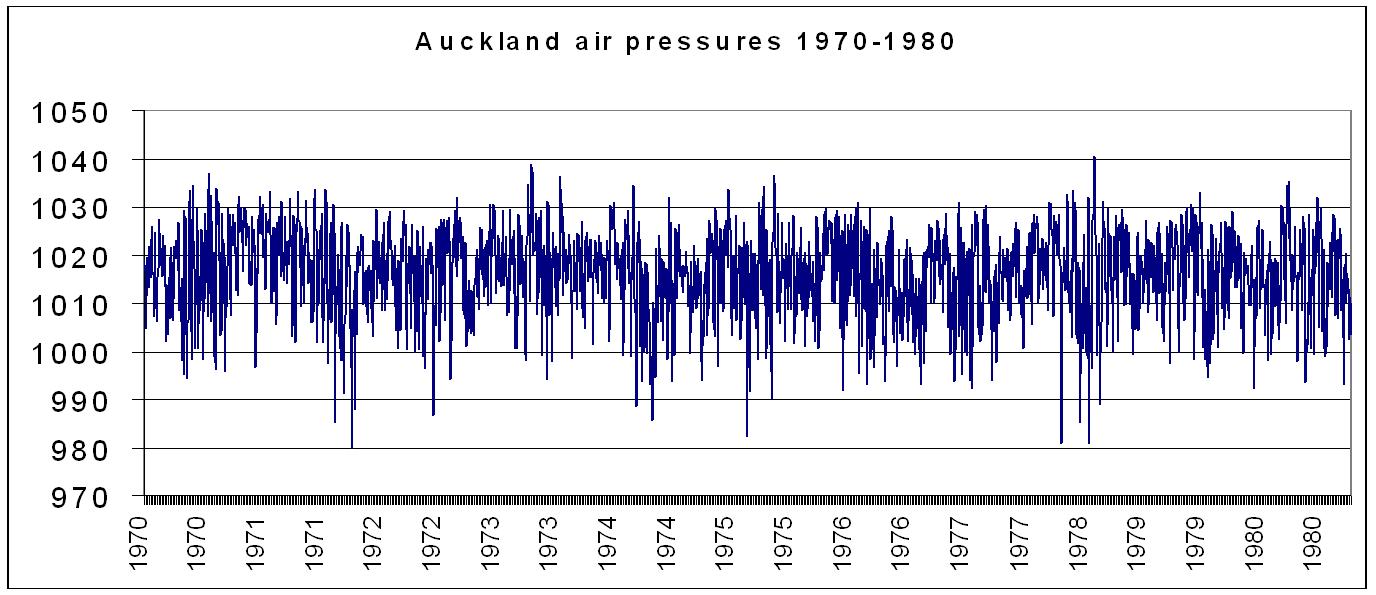
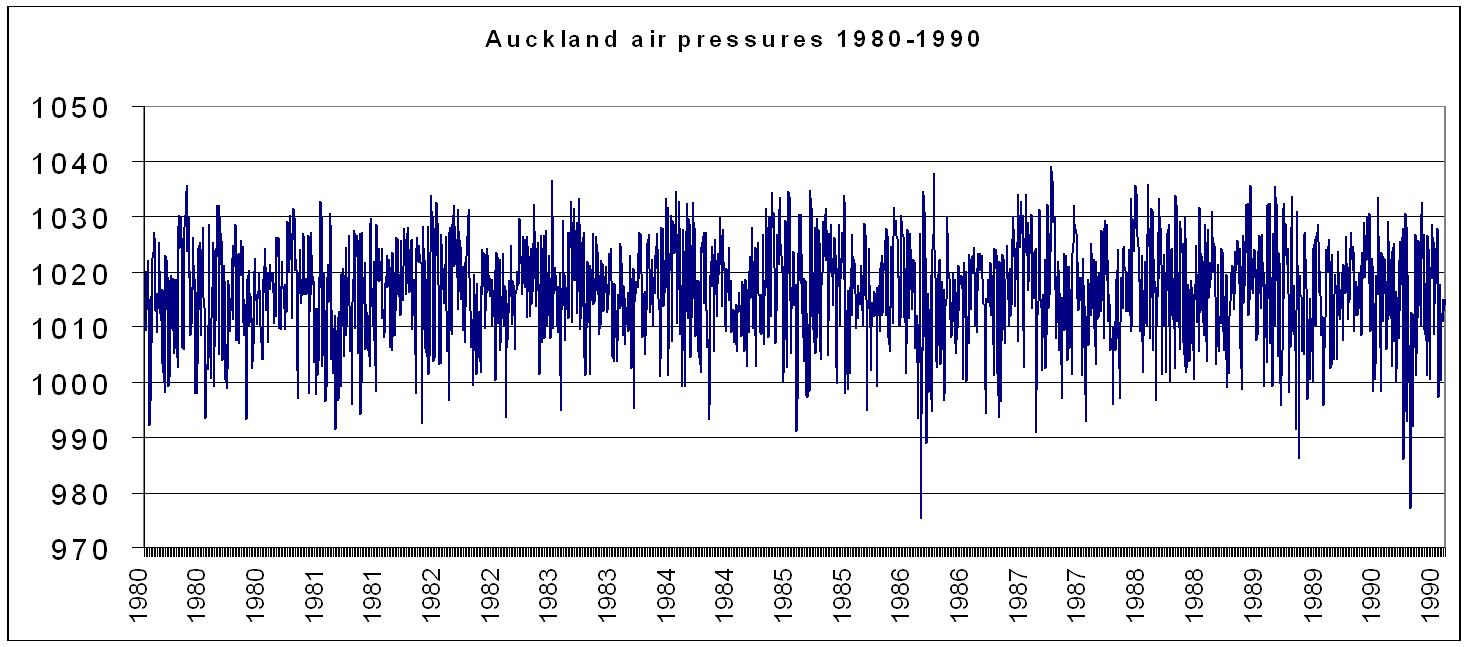
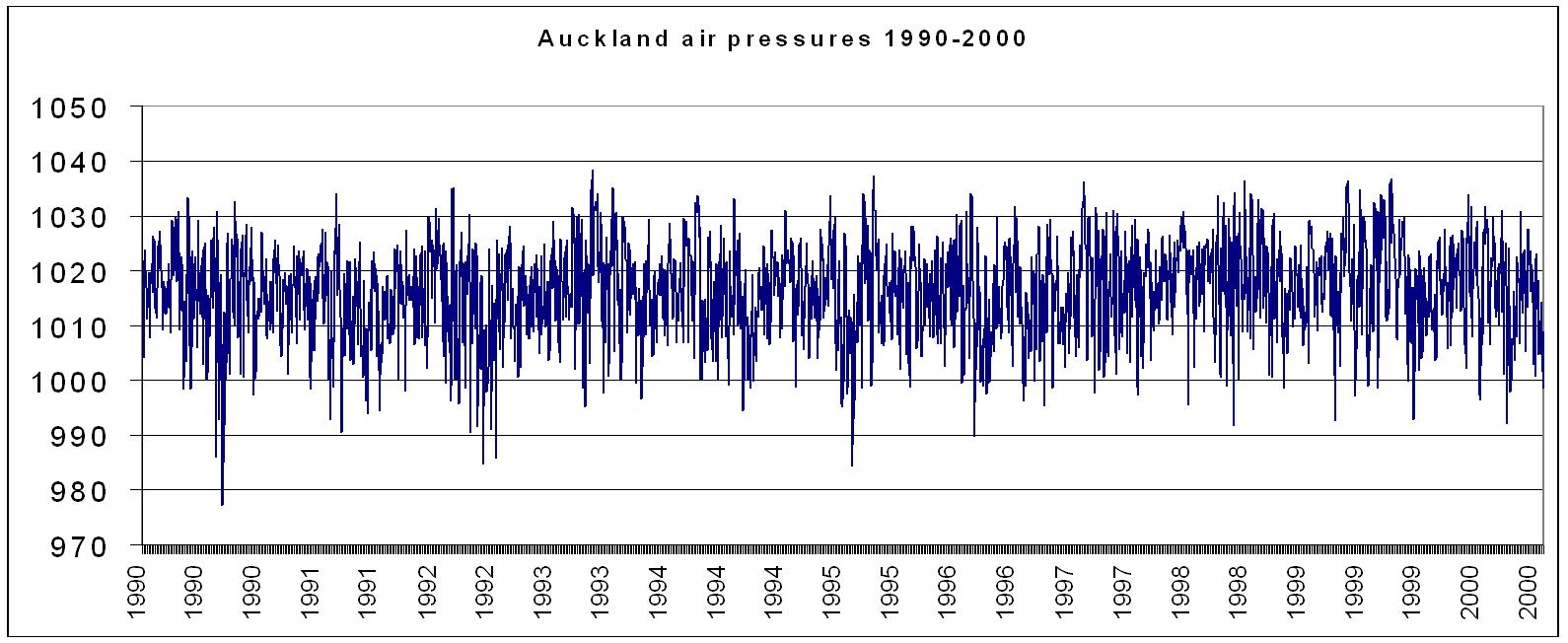
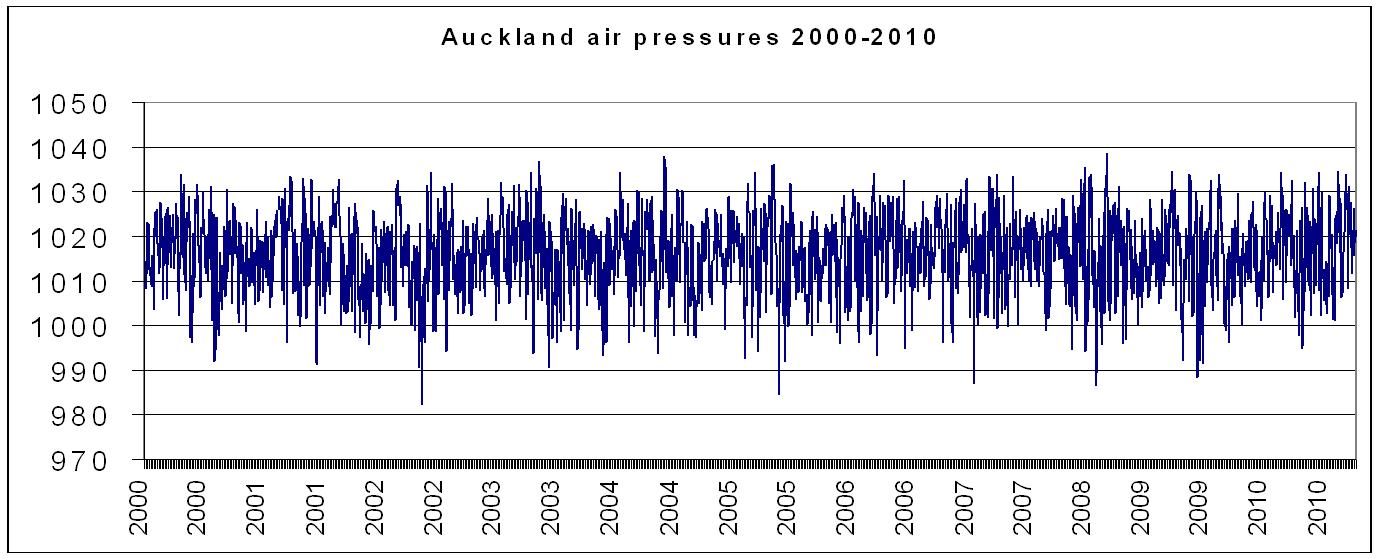
Dunedin
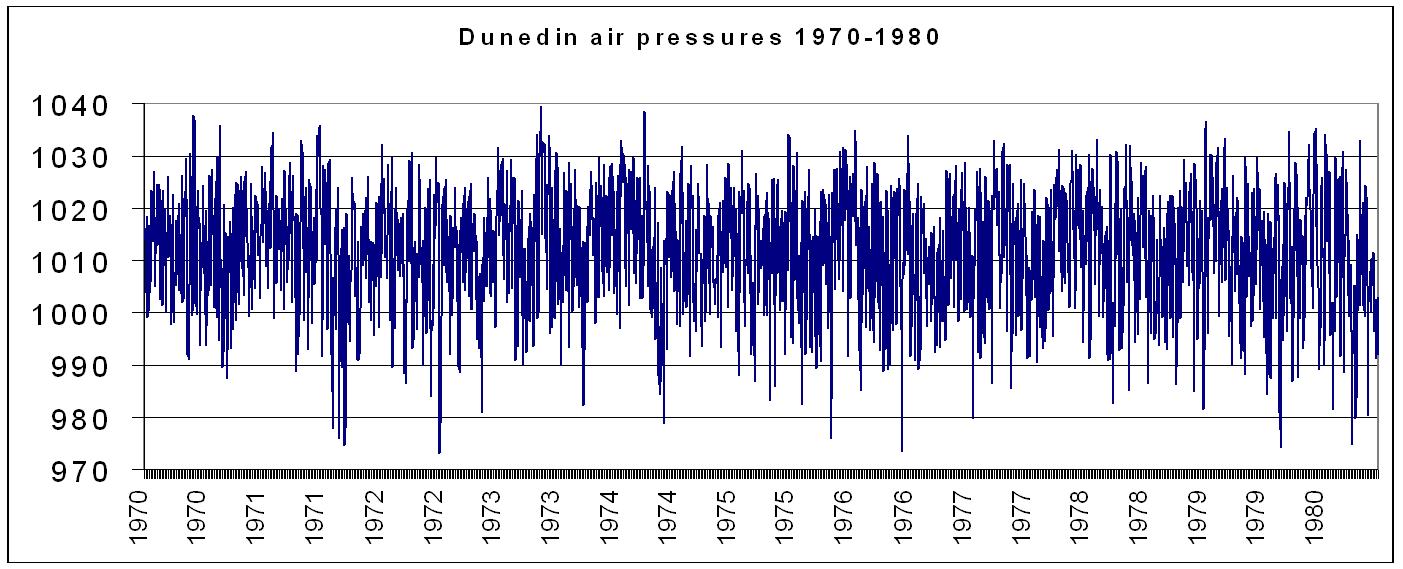
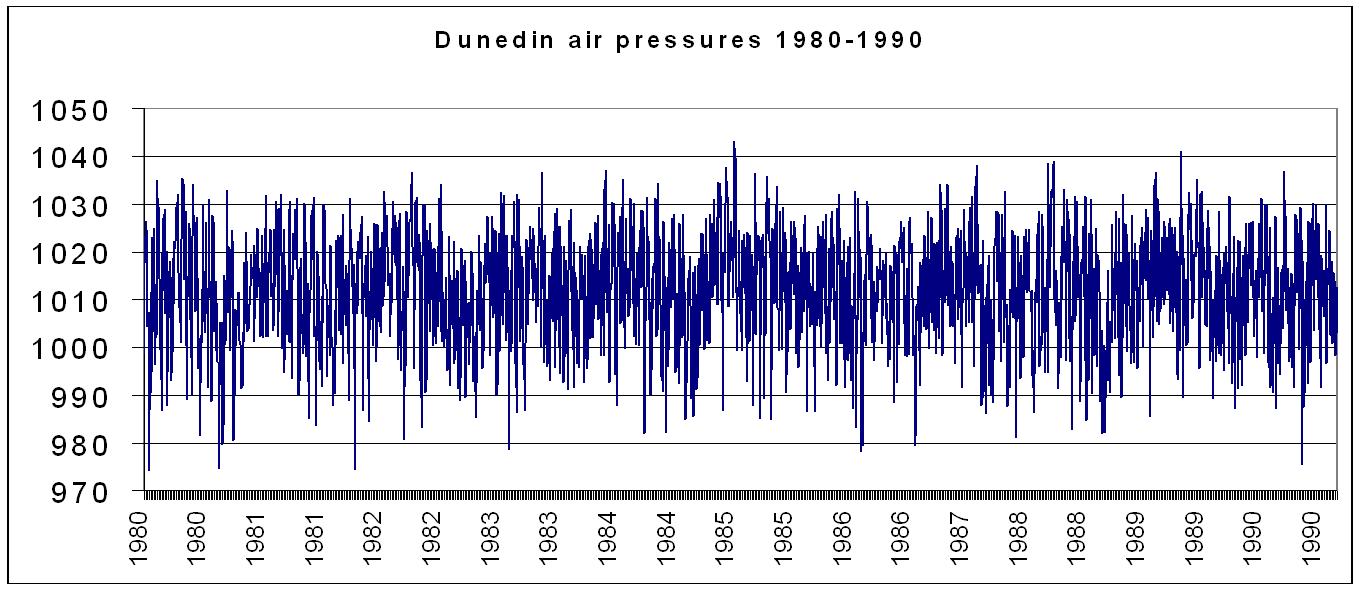
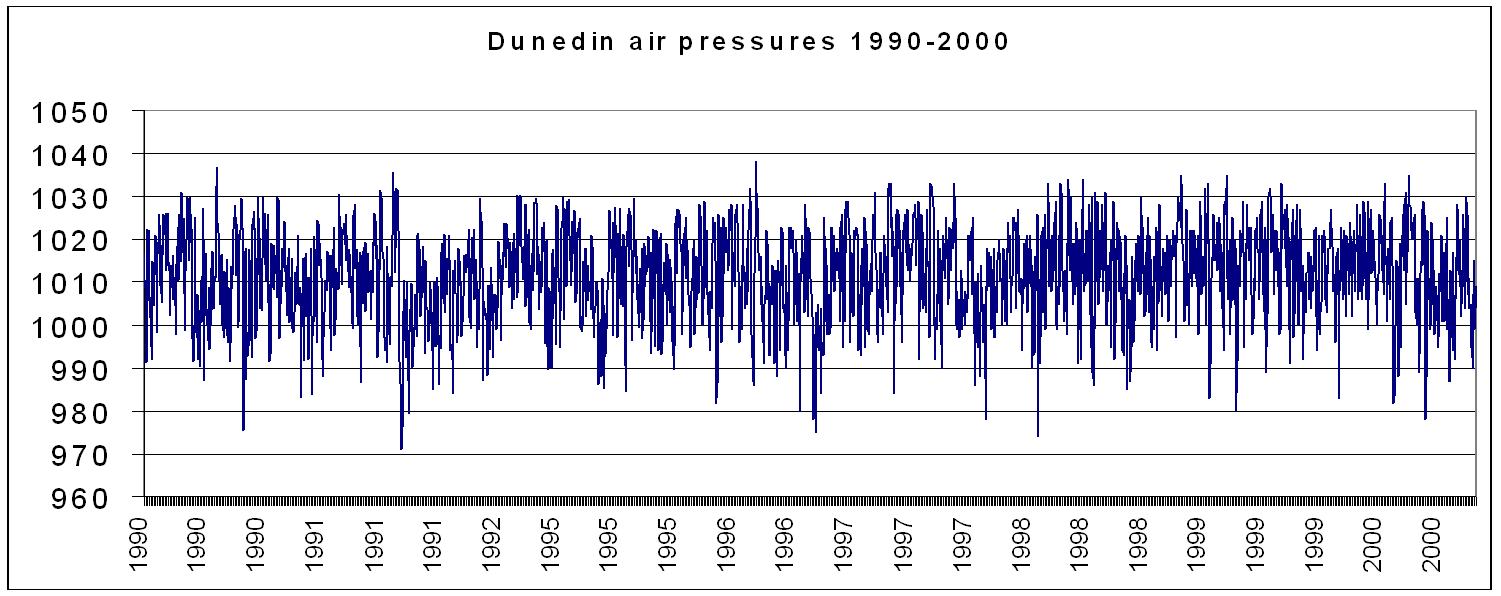
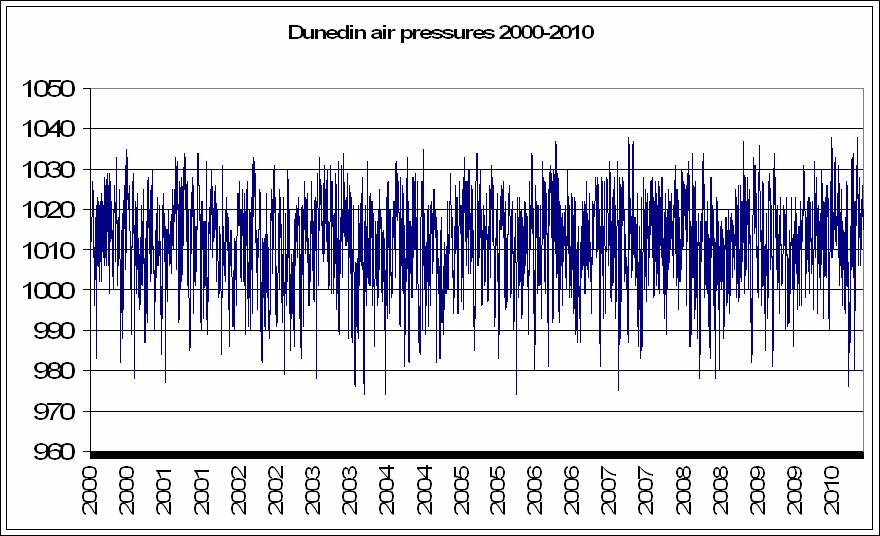
If anyone has 2 sets of data that proves some other case, which means 2 sets of empirical data gathered over 40 years from any one location, from anywhere in NZ, that can show incremental climate change, please forward it to
ken@predictweather.com
.
In science, two sets are called for, for verification, in case technology is faulty in one station. On receipt of such data, which might make a case for some incremental warming or climate change in those locations, I will print it here for all to see. Until then, we can say the science is fairly settled that there has been no climatic change over the past 40 years over the whole length of NZ.
We can safely assume that the climate of NZ has not changed since the last ice age. It is easy to tell by looking at what birds, animals and fauna still exist in a country, what that country's climate has always been. We can also see where flooding has eroded plains, which tells us about recurring amounts of rainfall.
So why are we paying an ETS? If there is no problem there is nothing to fix.